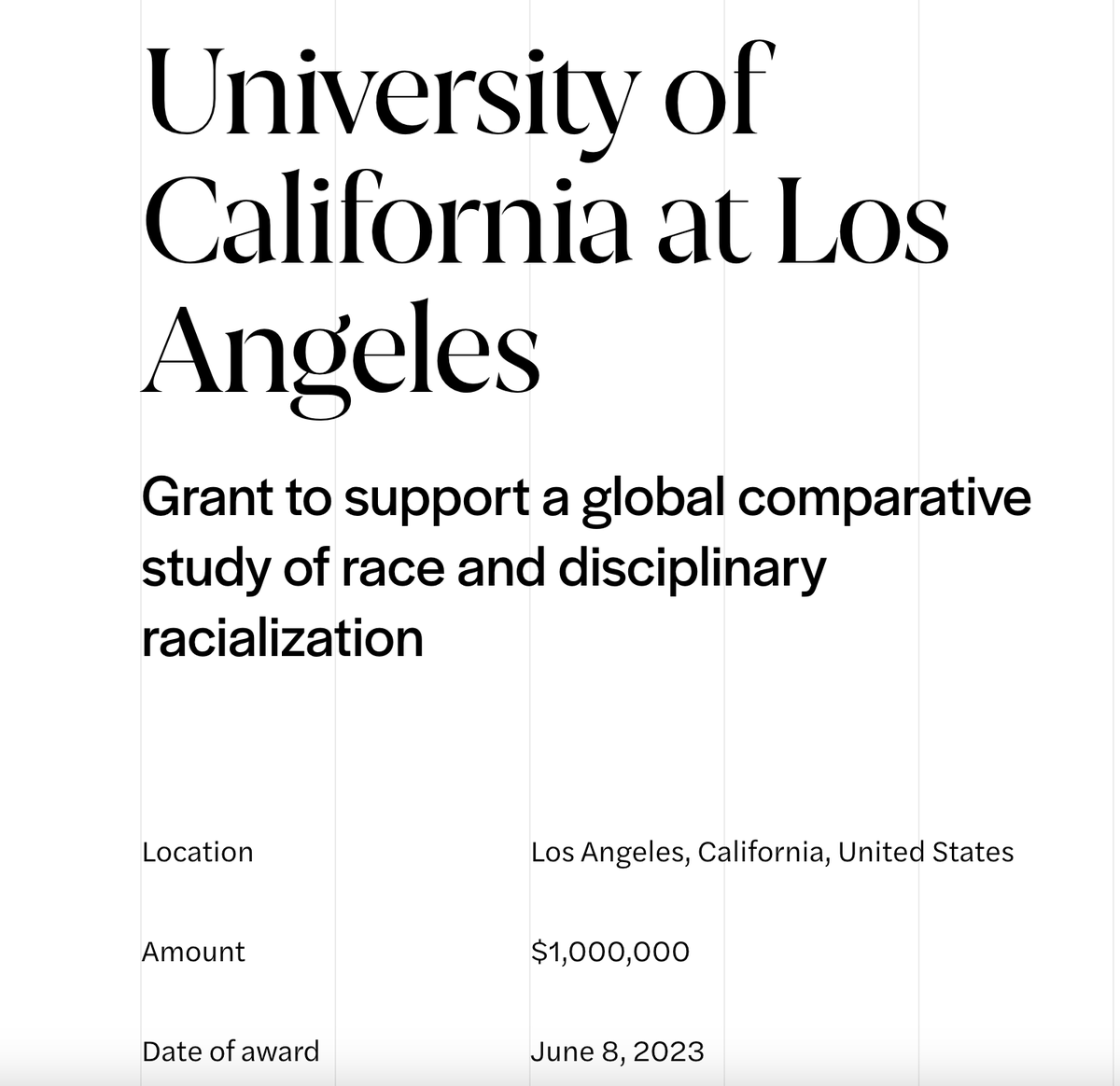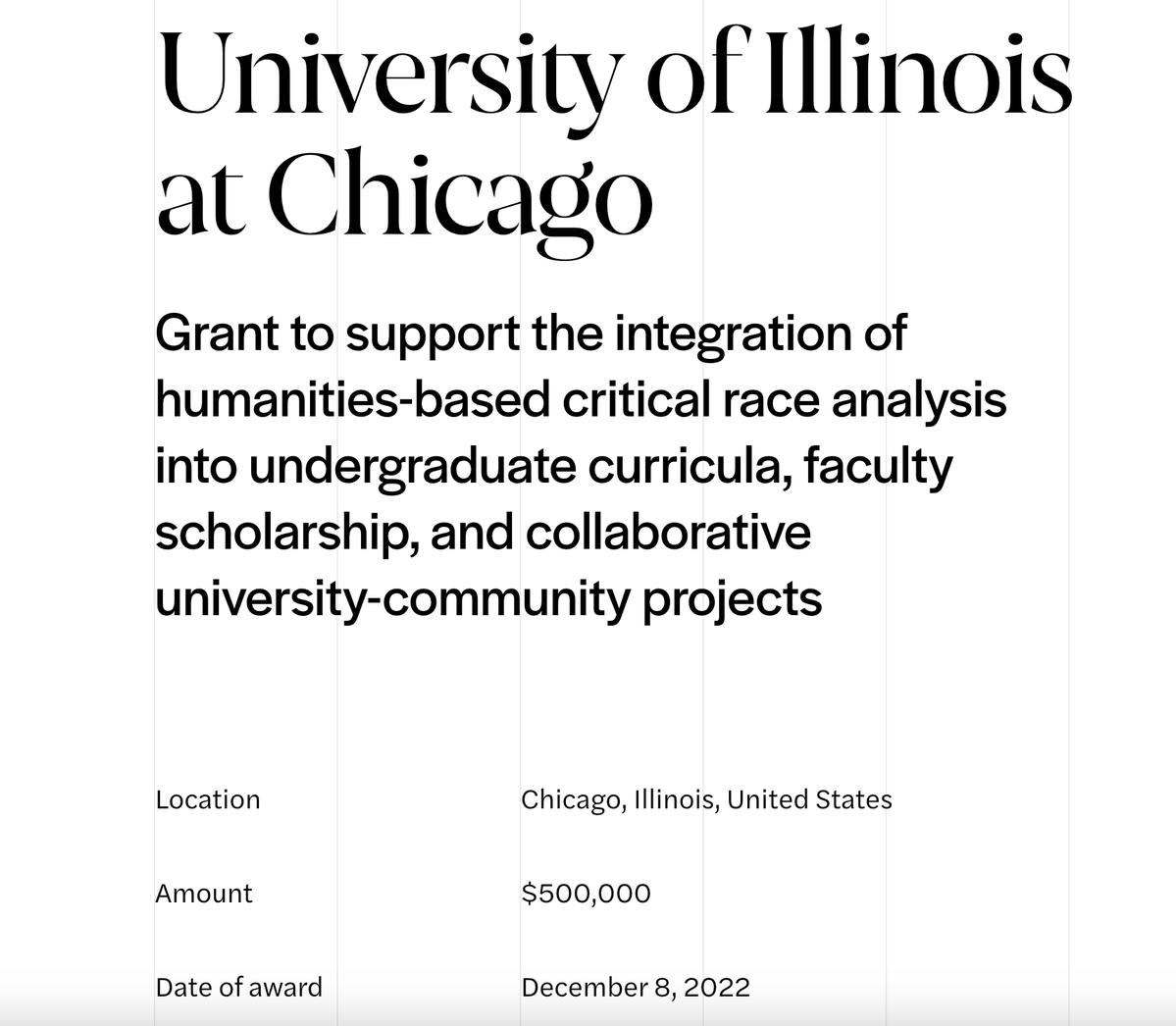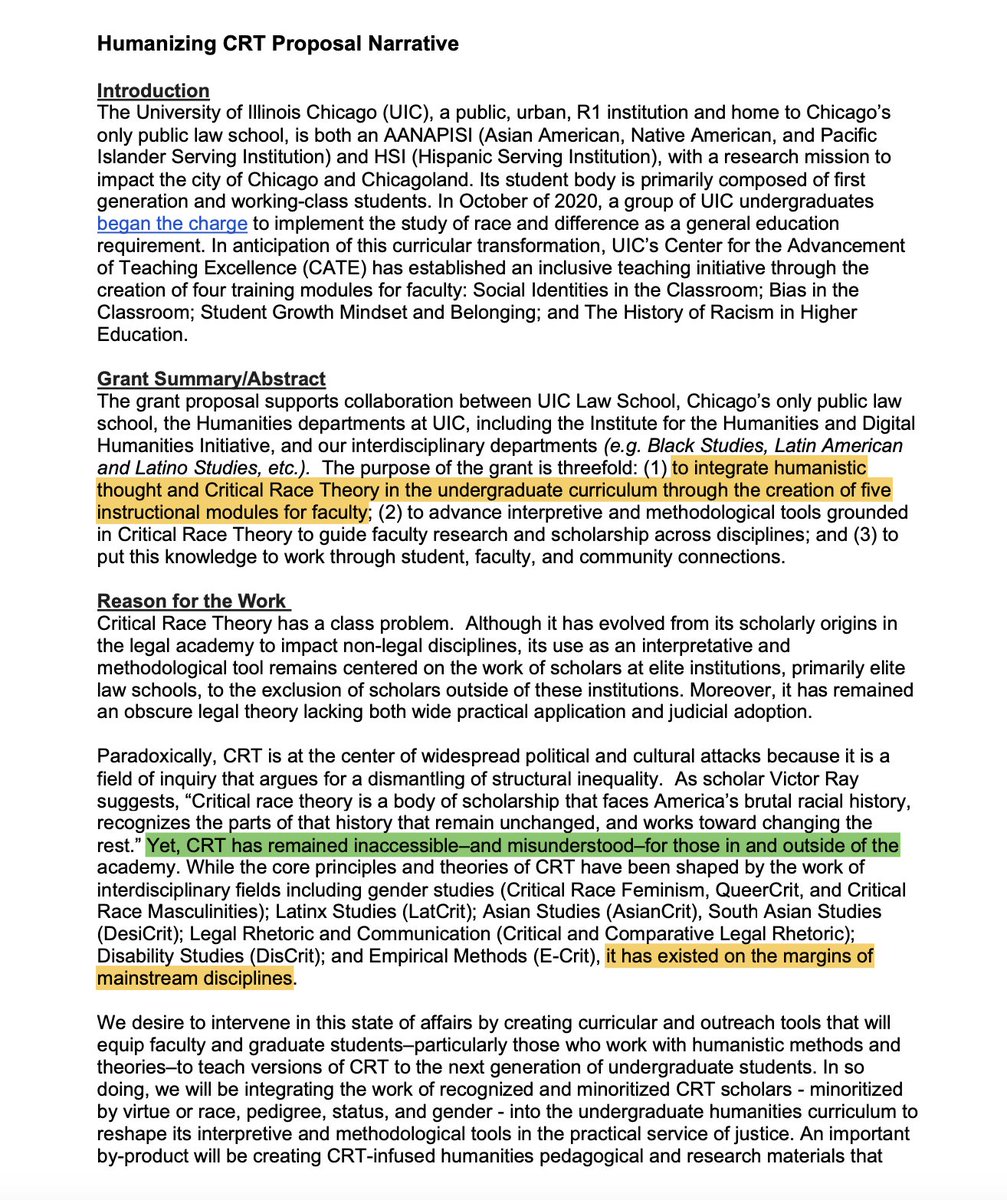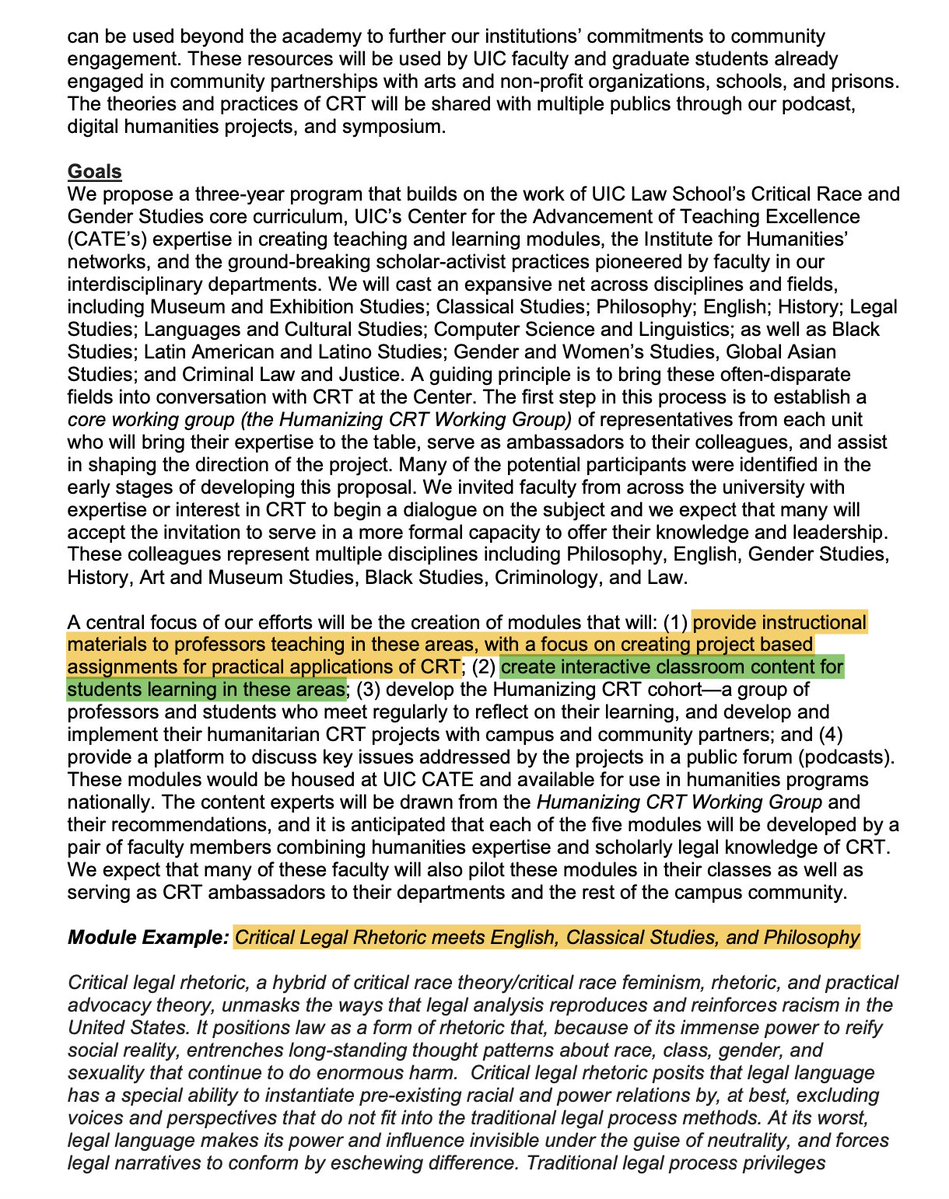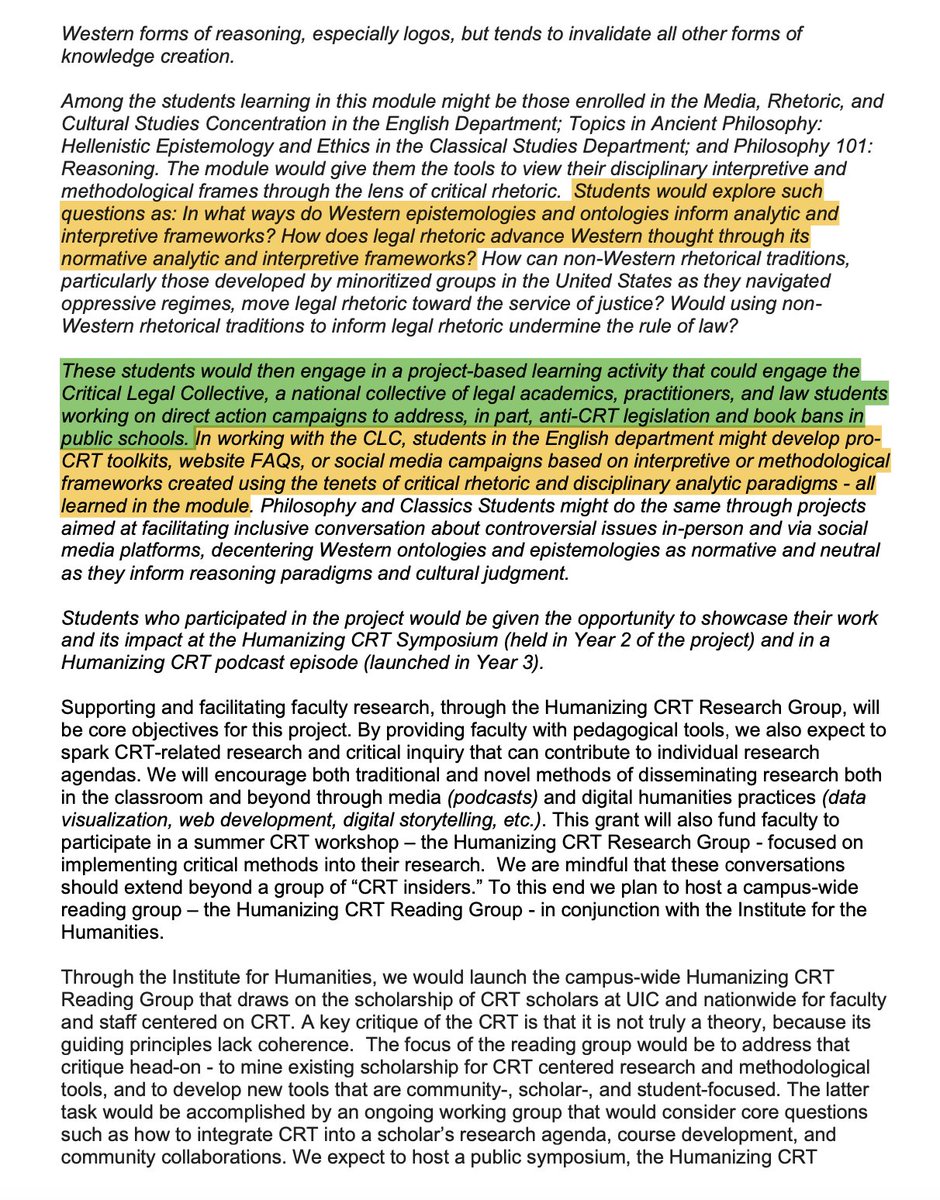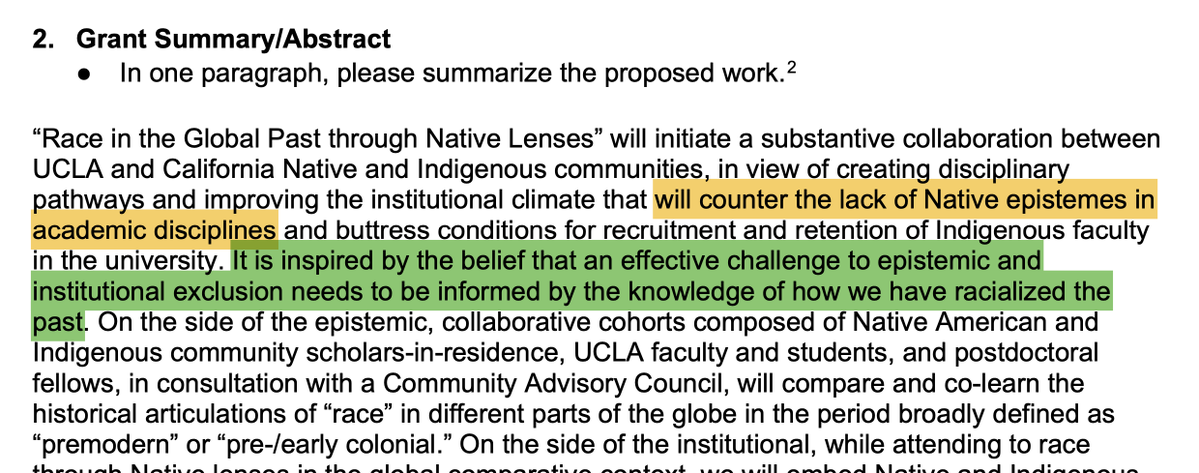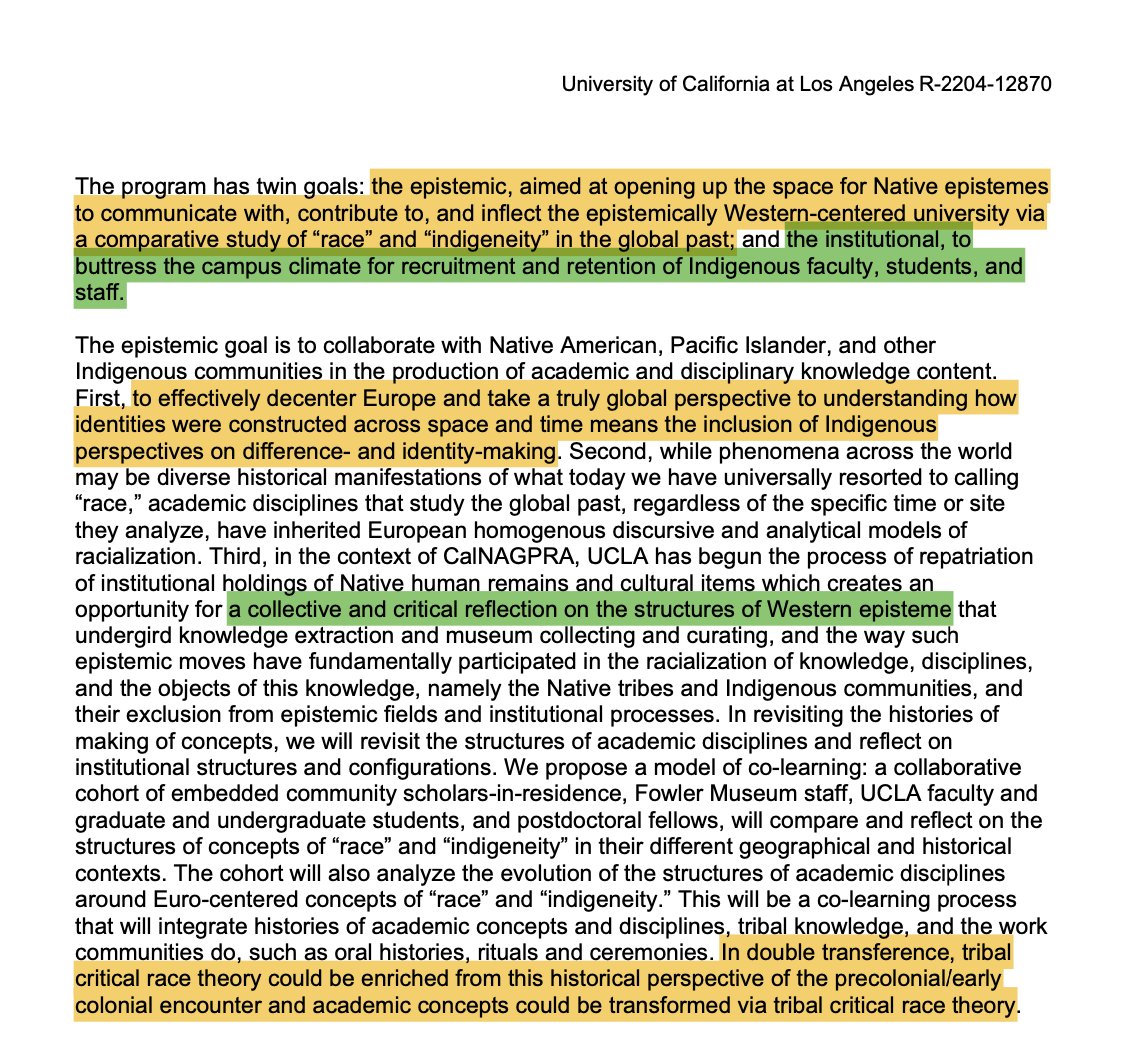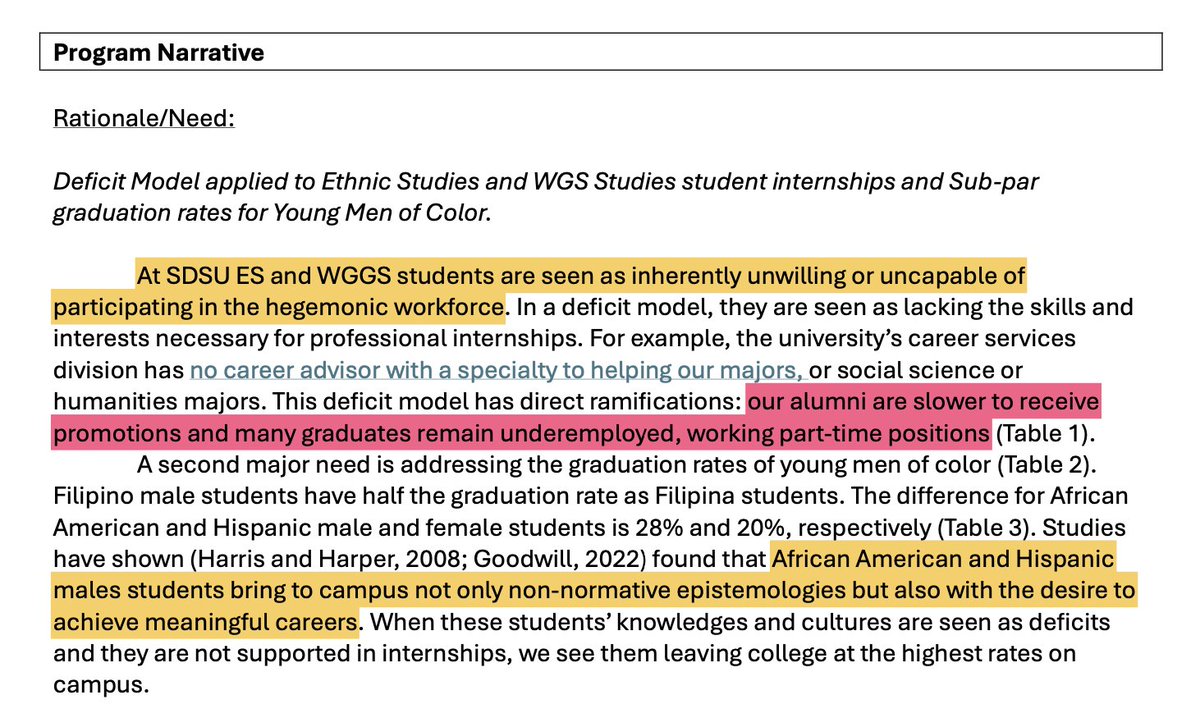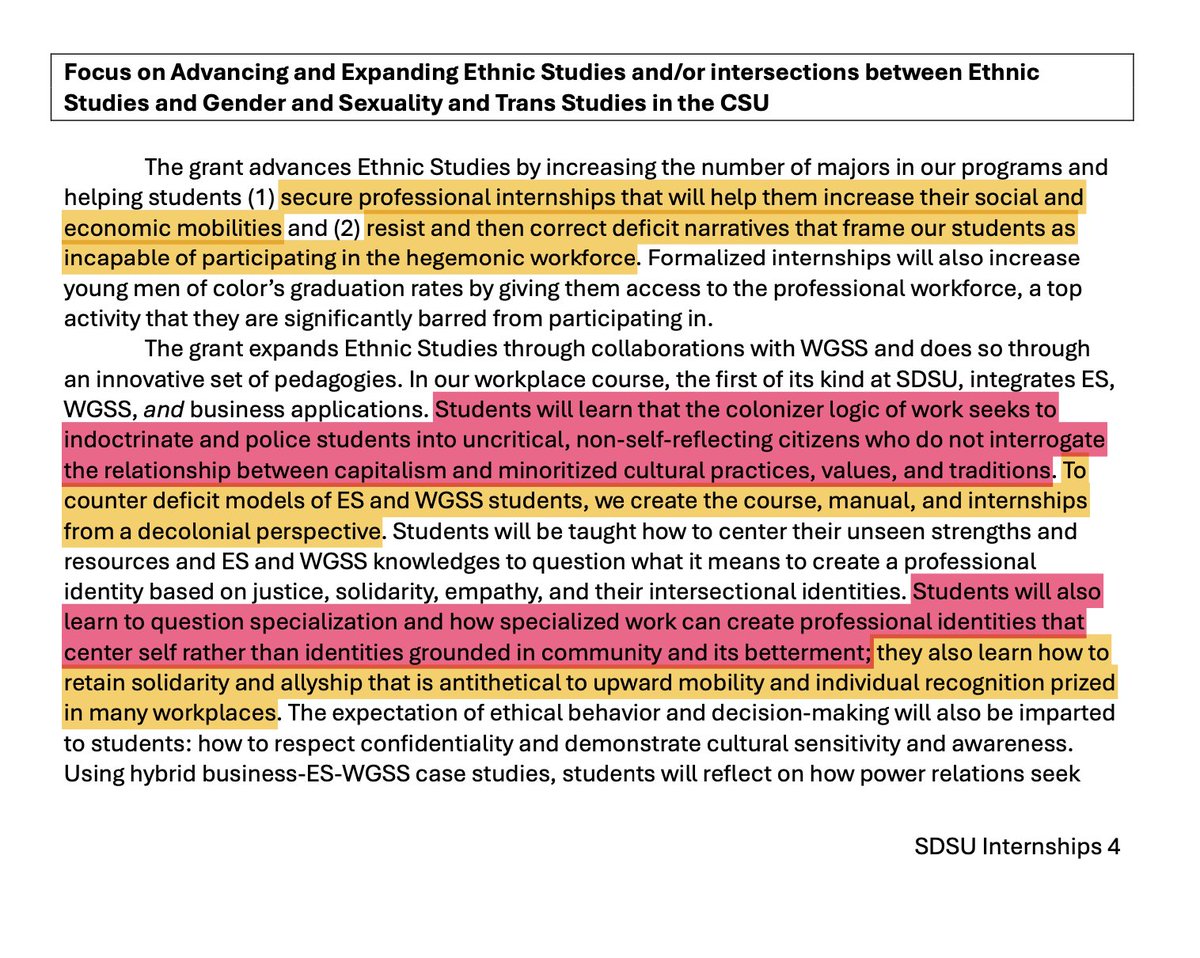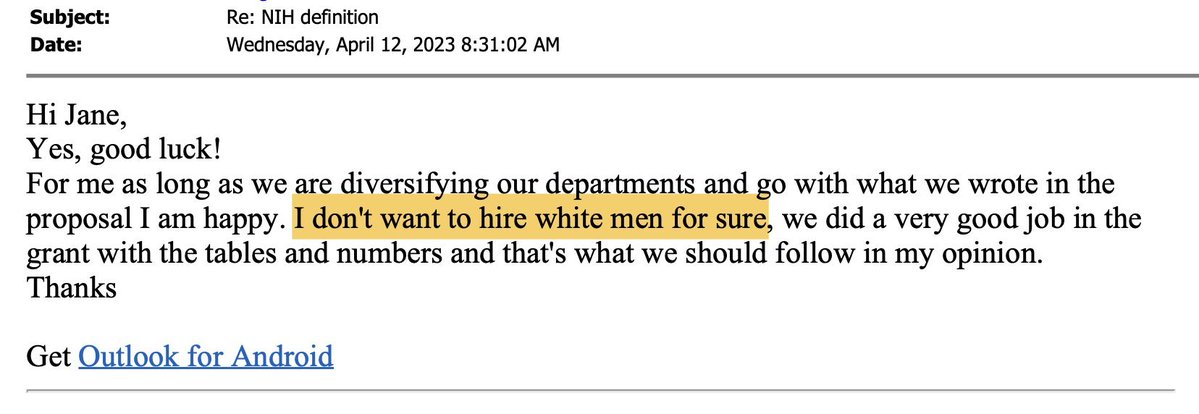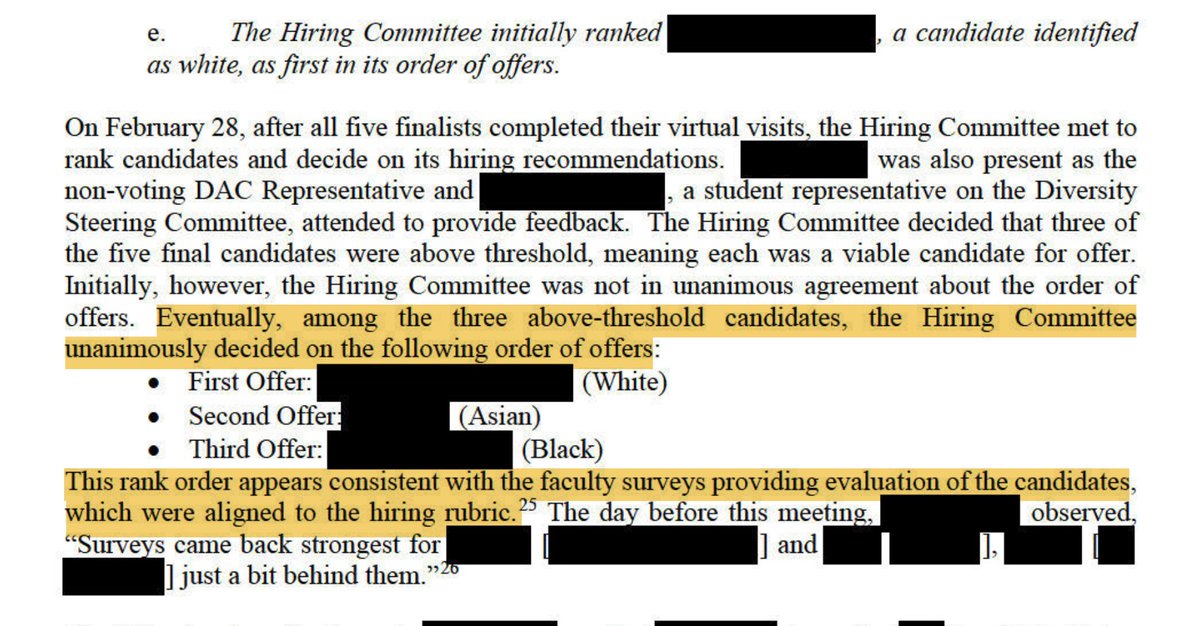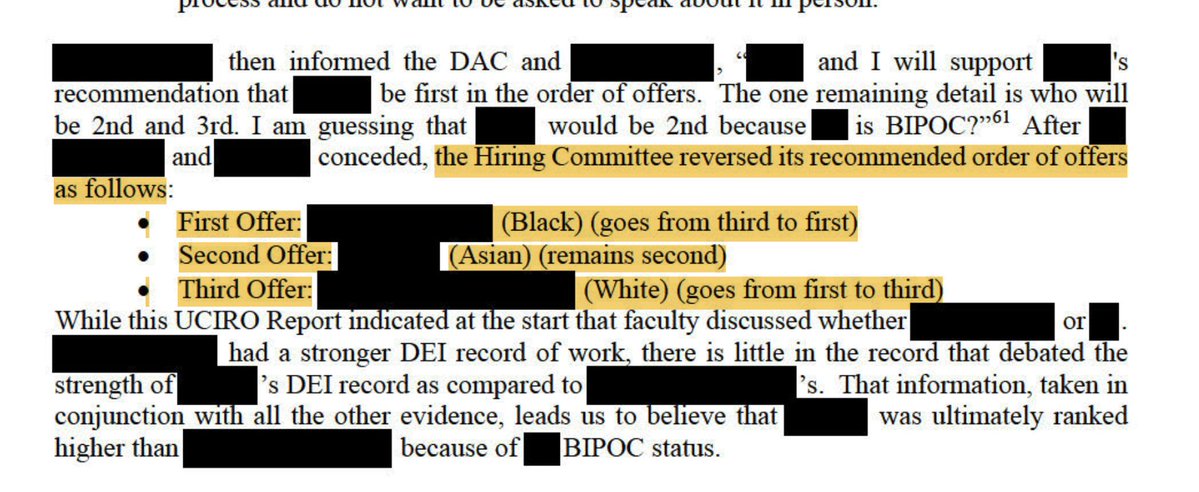In the long run, DEI initiatives could have an enormous effect not just on university curricula—but also on scientific and medical research.
No better case study exists than that of UC San Francisco. My latest in @tabletmag.
tabletmag.com/sections/news/…
No better case study exists than that of UC San Francisco. My latest in @tabletmag.
tabletmag.com/sections/news/…
@tabletmag UCSF—one of the top medical research institutions in the country—recently created a separate Task Force On Equity and Anti-Racism in Research.
The report makes dozens of recommendations aimed at injecting DEI into UCSF's research priorities.
The report makes dozens of recommendations aimed at injecting DEI into UCSF's research priorities.

@tabletmag The UCSF task force builds on layers of prior DEI bureaucratic expansion, spanning nearly a decade.
The “Anti-Racism Initiative,” for example, established dozens of new policies, such as “evaluating contributions to diversity statements in faculty advancement portfolios.”
The “Anti-Racism Initiative,” for example, established dozens of new policies, such as “evaluating contributions to diversity statements in faculty advancement portfolios.”

@tabletmag Through its Difference Matters initiative, the medical school created a document titled “Anti-Racism and Race Literacy: A Primer and Toolkit for Medical Educators.”
The guide is filled with eyebrow raising assertions.
The guide is filled with eyebrow raising assertions.

@tabletmag The UCSF race literacy guide—staggeringly—defines racism as “the prioritization of the people who are considered white and the devaluation, exploitation, and exclusion of people racialized as non-white.” 

@tabletmag The UCSF racial literacy guide also suggests—perhaps unsurprisingly—that anti-racism involves directly shifting power from those who are white to those who are black. 

@tabletmag In a way, this is par for the course. Med schools across the country have aggressively embraced DEI programming.
Like the UNC School of Medicine, which proposed mandatory student advocacy—and that professors should be required to “adhere to core concepts of anti-racism.”

Like the UNC School of Medicine, which proposed mandatory student advocacy—and that professors should be required to “adhere to core concepts of anti-racism.”


@tabletmag For UCSF’s Task Force on Anti-Racism and Equity Research, the goal is to transform the university’s research enterprise:
“The overarching changes required to mitigate racism in research is a philosophical shift in the mindset of those in power and those who produce research.”
“The overarching changes required to mitigate racism in research is a philosophical shift in the mindset of those in power and those who produce research.”

@tabletmag Though the report only makes recommendations, some have been implemented, and many others likely will be.
The first recommendation calls for a new vice chancellor for DEI in research. In September, UCSF announced the role was given to Tung Nguyen, co-chair of the task force.

The first recommendation calls for a new vice chancellor for DEI in research. In September, UCSF announced the role was given to Tung Nguyen, co-chair of the task force.


@tabletmag Nguyen refers to the UCSF report as a “labor of love and trauma.” (More on this below.)
The report itself states that its recommended policies will show that “anti-racism” is “centered in all aspects of the way we work and function as a research enterprise.”
The report itself states that its recommended policies will show that “anti-racism” is “centered in all aspects of the way we work and function as a research enterprise.”

@tabletmag These policies include emphasizing diversity statements even more strongly in UCSF’s promotion and tenure process.
And evaluating UCSF university leadership along such lines as well—for example, for their “record of hiring women and members of historically excluded populations.”

And evaluating UCSF university leadership along such lines as well—for example, for their “record of hiring women and members of historically excluded populations.”


@tabletmag The task force calls for inserting DEI requirements into its research enterprise and adding “scoring criteria on equity and anti-racism” to UCSF’s internal grants.
It recommends expanding UCSF’s existing anti-racism research grant program.
It recommends expanding UCSF’s existing anti-racism research grant program.

@tabletmag That program provides perhaps the clearest articulation of what UCSF means by “anti-racism research.”
It borrows the language of UCSF’s “Anti-Racism and Race Literacy” guide.
It borrows the language of UCSF’s “Anti-Racism and Race Literacy” guide.

@tabletmag It later adds that anti-racism research involves using methodologies like “Public Health Critical Race Praxis.” 

@tabletmag Much of the report raises obvious concerns. Some, for instance, would reject the task force’s assertion that racism pervades all areas of the university.
More broadly, many of these measures pose an obvious threat to academic freedom.
More broadly, many of these measures pose an obvious threat to academic freedom.
@tabletmag By the time it published the report, the UCSF task force was aware of all of these issues.
Each had been brought up by UCSF employees during the comment period. The comments were published in the report’s appendixes. Here are a few:
Each had been brought up by UCSF employees during the comment period. The comments were published in the report’s appendixes. Here are a few:

@tabletmag Evidently, these critical remarks were enough to make the report, in Nguyen's words, a “labor of love and trauma.”
@tabletmag Some commenters were critical of UCSF's DEI-in-research plan. The response from UCSF’s official “Task Force on Equity and Anti-Racism”:
“TASK FORCE MEMBERS WERE TRAUMATIZED BY A STRIKING NUMBER OF COMMENTS THAT DENIED THE EXISTENCE OF INEQUITIES AND RACISM”
“TASK FORCE MEMBERS WERE TRAUMATIZED BY A STRIKING NUMBER OF COMMENTS THAT DENIED THE EXISTENCE OF INEQUITIES AND RACISM”

@tabletmag This point—that the critical remarks about the report were traumatizing—was repeated multiple times.
The forward to the UCSF report quotes one of the task force co-chairs, Sun Yu Cotter, who adds the excerpt below.
The forward to the UCSF report quotes one of the task force co-chairs, Sun Yu Cotter, who adds the excerpt below.

@tabletmag Take note. This is the future of American medicine.
Also, read the full piece @tabletmag.
tabletmag.com/sections/news/…
Also, read the full piece @tabletmag.
tabletmag.com/sections/news/…
Of interest, @sullydish, @bariweiss, @EmilyYoffe, @donoharm, @jordanbpeterson, @wu_wenyuan, @feelsdesperate, @NoahPollak, @aaronsibarium, @ishapiro.
• • •
Missing some Tweet in this thread? You can try to
force a refresh


